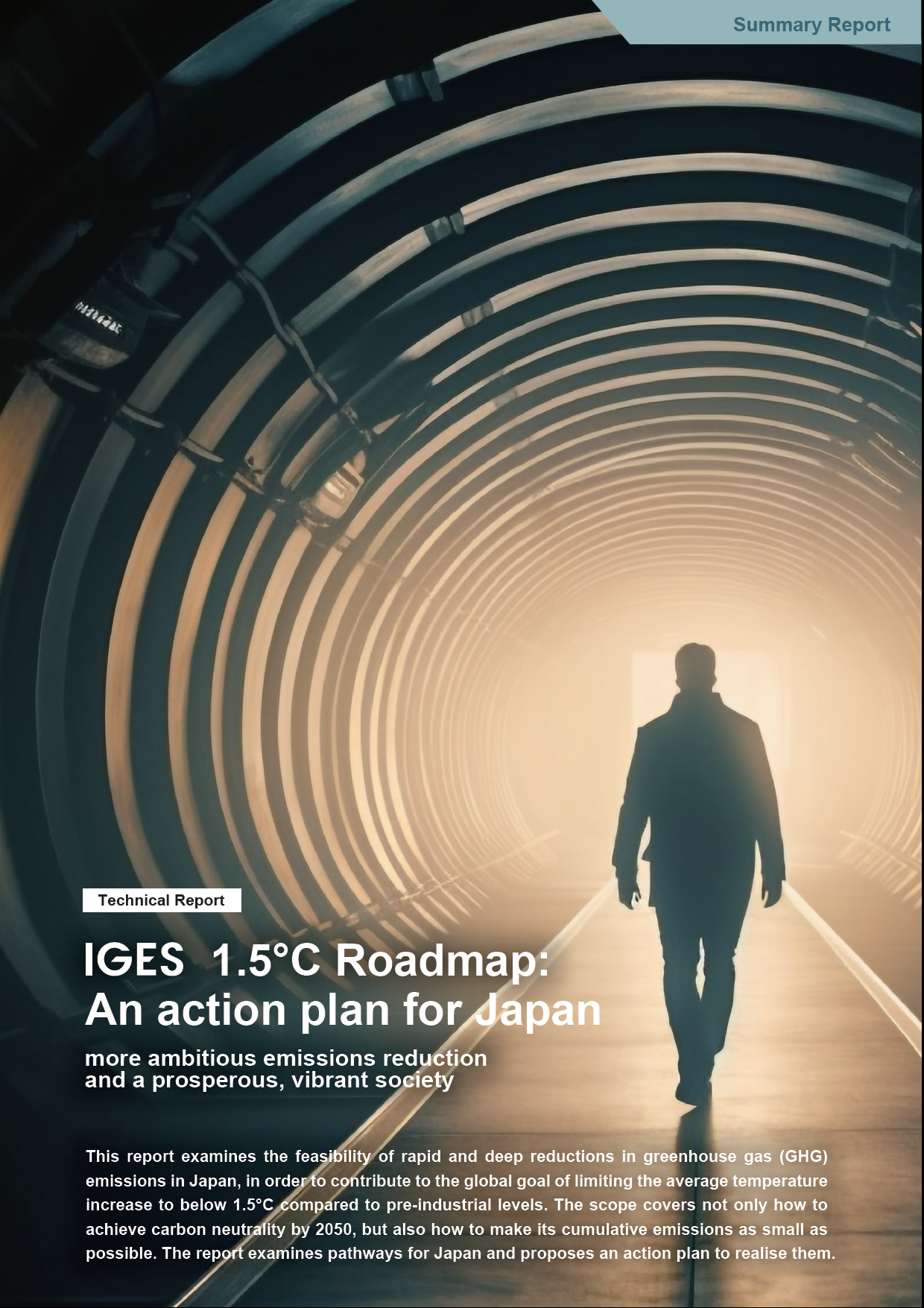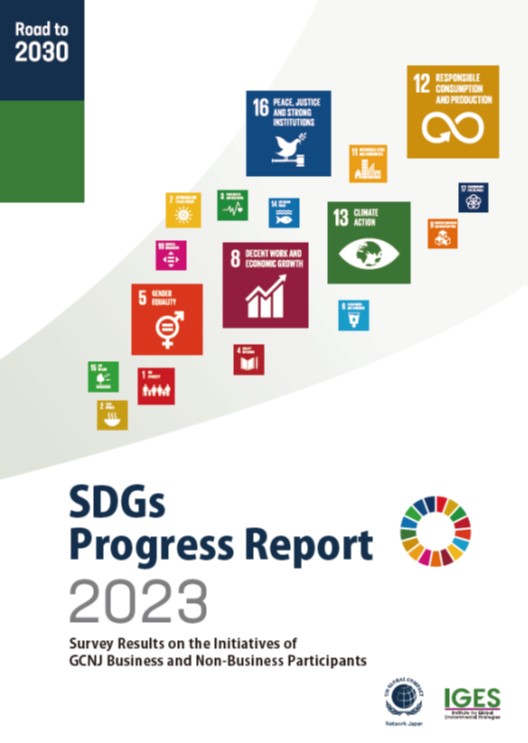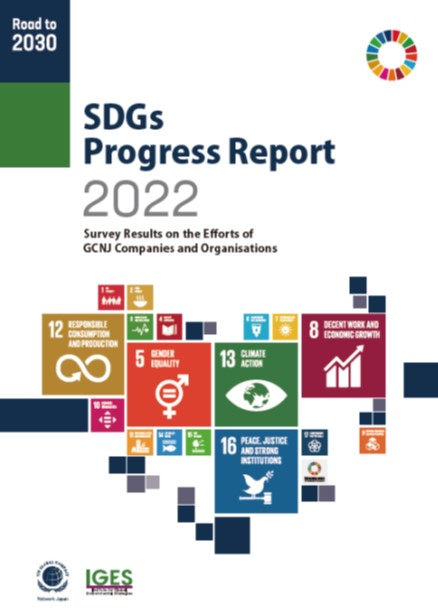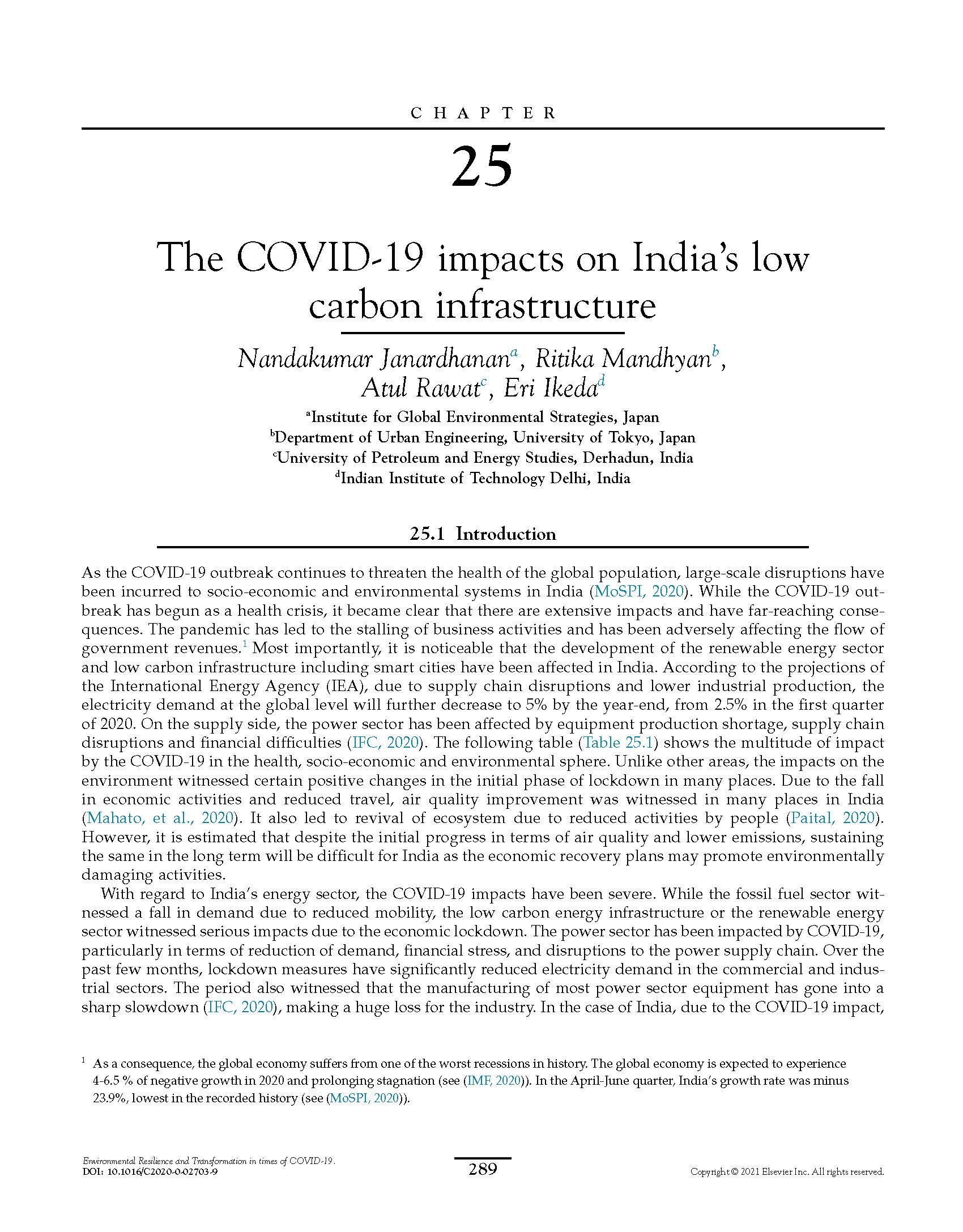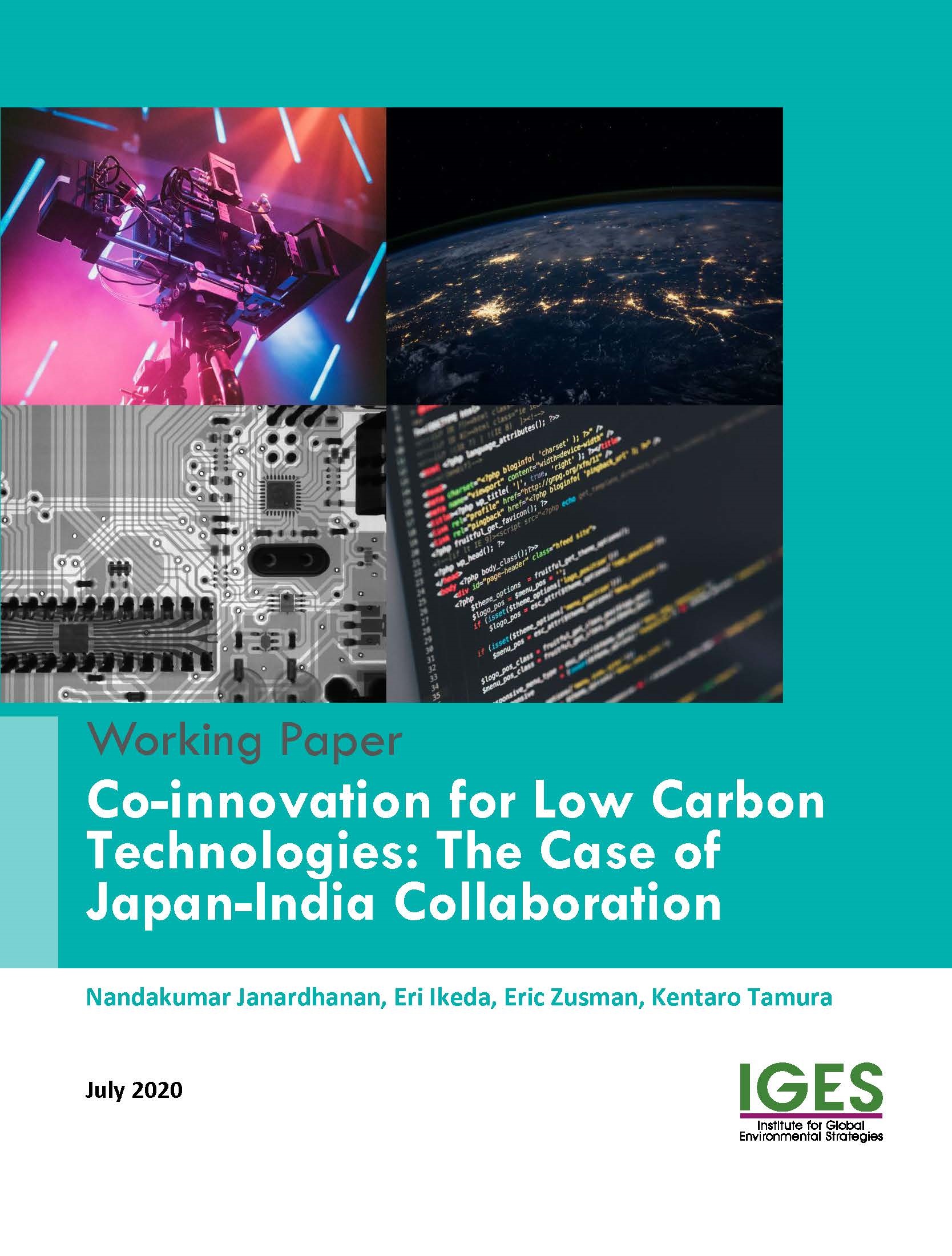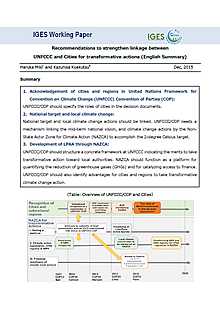This report examines the feasibility of Japan not only achieving carbon neutrality by 2050, but also making significant reductions in greenhouse gas (GHG) emissions, so as to make its cumulative emissions as small as possible, thereby contributing to the global goal of limiting the average temperature increase to below 1.5°C compared to the pre...
- Clear all
- Language: (-) English
- Research Unit: (-) Climate and Energy
- Topic: (-) Sustainable Societies
- Region/Country: (-) Asia
Results 1 - 10 of 17 (Sorted by date)
This report includes an analysis of the level of awareness of the SDGs, as well as the progress made in addressing the five SDG Goals (thematic themes) that the UN Global Compact focuses on: Goals 5 (gender equality), 8 (work and human rights), 13 (climate change) and 16 (anti-corruption), and Goal 12 (sustainable consumption and production), which...
The economic disruptions from the Ukraine war have intensified short term concerns about energy and food security, as well as access to critical minerals. Climate security is also increasingly urgent. This paper urges governments to speed up, not slow down, transitions away from fossil fuels and toward more sustainable development patterns. The war...
Based on the results of a survey conducted in October-November 2021, this report provides an analysis of the level of awareness and penetration of the SDGs among GCNJ member companies and organisations, as well as progress on five of the global goals: SDG 5, (Gender Equality), SDG 8 (Decent Work and Human Rights), SDG 13 (Climate Change), and SDG16...
Keywords:
ASEAN Centre for Energy Policy Brief
1. The ASEAN State of Climate Change Report (ASCCR) presented ASEAN’s mitigation goal: i) Achieve net-zero greenhouse gas (GHG) emissions as early as possible in the latter half of the 21st century; and ii) Cap peak GHG emissions as soon as possible after 2030 to ensure the net-zero GHG emission goal is met on schedule. 2. However, the updated...
In Aligning Climate Change and Sustainable Development Policies in Asia
The widespread adoption of low emissions technologies in rapidly developing countries is critical to resolving the climate emergency.1 However, many fast growing economies lack the energy efficient, renewable, and other advanced technologies needed to mitigate climate change. Technology transfer could help address these countries need. Yet the...
Keywords:
In Environmental Resilience and Transformation in Times of COVID-19
The COVID-19 pandemic has posed unprecedented challenges to the global economy. India faces a multitude of challenges due to COVID-19 impacts. The pandemic-induced economic lockdown has posed barriers to various clean energy and low carbon infrastructure development projects. The renewable energy sector, which has been heavily dependent on global...
Enhanced collaboration with countries with advanced technologies is essential to closing greenhouse gas (GHG) mitigation gaps in developing countries’ energy consuming and producing sectors. However, traditional models of technology transfer tend to focus on the sale of expensive technologies to developing countries, often subsidised through aid or...
Keywords:
This is the summary of a working paper to strengthen linkage between UNFCCC and Cities for transformative actions. In order to accomplish 2-degree Celsius target, national target and local climate change actions should be linked. UNFCCC/COP needs a mechanism linking the mid-term national vision, and climate change actions by the Non-State Actor...
The guidebook aims to provide private sector to enhance their low-carbon businesses in India.

